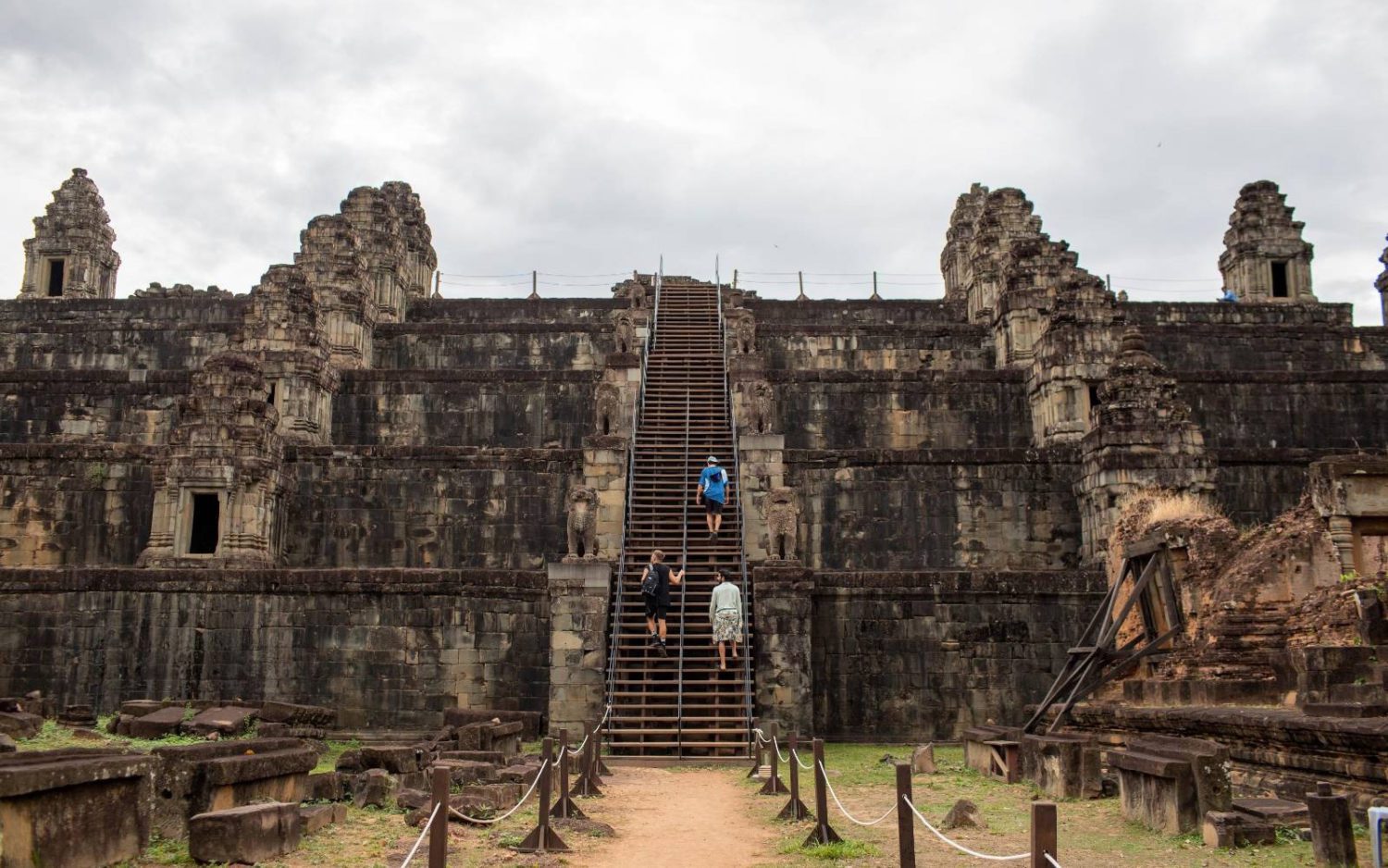The government will continue to support Siem Reap tourism workers as the sector continues to struggle in the temple city, a Labor Minister official said Thursday, but will suspend monthly payments for other tourism workers.
The government started paying workers up to $40 a month in 2020 after the Covid-19 pandemic decimated tourism businesses, which have only recently shown early signs of revival. The Labor Ministry announced on Tuesday the payments would continue for workers in Siem Reap but not elsewhere.
The ministry justified the move by saying the pandemic had been dealt with effectively and that a gradual increase in tourists was helping travel-dependent businesses. Experts and workers’ representatives were not as optimistic about the sector’s short-term prospects.
Labor Ministry spokesperson Heng Sour said Siem Reap business was recovering slowly and that was why support for workers there had to continue.
“The tourism sector is recovering gradually because of [Covid-19] immunity in the community. That allows for economic and social activity to progress again and return to a normal trend in a new normal way of life,” he said.
Sour added that 235 tourism businesses had suspended jobs for 26,925 workers, of which 153 enterprises were in Siem Reap and employed 15,705 workers. The government had already disbursed $8.5 million using Wing money transfer services, of which Siem Reap workers got $6.5 million.
Seng Taing, the manager at TS Concept, which runs a cafe and chocolate shops in Phnom Penh, said their workers had received assistance from the government ranging from $20 to $40.
He said the money had stopped now that the business was running and workers had returned to work.
“It is up to the government. Government has more eyes and noses, and weighs it up based on the national budget and other inputs and outputs.”
However, Morm Rithy, the president of the Cambodian Tourism and Service Workers Federation, was less hopeful about the current situation.
He said there was not enough increase in tourists to justify suspending the monthly allowances to workers. He said only 5% to 10% of international tourists had returned and local tourists were largely traveling within the country only during long holidays.
“If the government decided to end the relief fund for them, I think that it is not a proper decision and it is too fast and they should reconsider,” he said.
He questioned how many businesses had reopened and taken back workers, adding that only a small fraction of the workforce before the pandemic had returned to work.
“So the remaining workers that companies did not get back, where do [we] keep them? They are jobless,” he said. “[If] decisions are made without clear judgment, it will affect the people’s finances.”
Top Sopheak, a Tourism Ministry spokesperson, said tourist numbers had picked up. There were around 250,000 local tourists traveling around the country, and 340,000 foreign visitors had come to Cambodia this year as of May. Sihanoukville and Phnom Penh and border areas Poipet and Svay Rieng were seeing heightened business activity, he said.
Sopheak said there were around 3,400 foreign arrivals a day in May, which increased to 4,200 in June. They were mostly from Asean countries and China, he said, expecting this number to move up and likely inch toward returning to pre-pandemic levels.
“From July, we expect the increase could be 4,500 to 5,500 international tourists per day. If there is no serious impact, we expect that there will be 800,000 to 1 million international tourists in 2022.”
The country saw 6.6 million international tourists in 2019, according to Tourism Ministry statistics.













